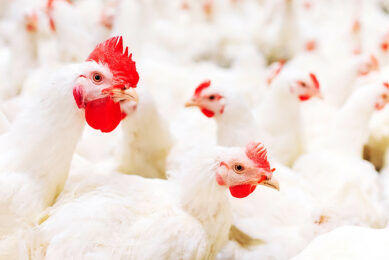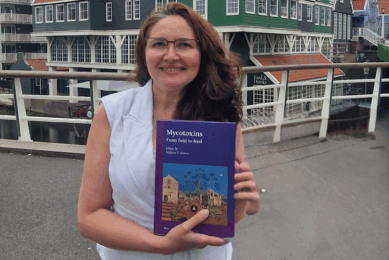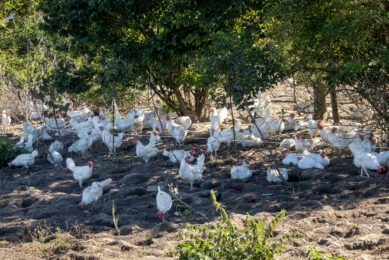Mycotoxins block early development in poultry

Much has been written, and is accepted, about the importance of getting the earliest stages of the chick’s life correct in order to maximise the genetic performances available. With continued genetic improvements in broiler growth performance, the impact of early development takes greater significance as it represents a larger and larger percentage of the bird’s life.
As we know, the modern chick should be hatched from a clean egg in a clean environment which limits the existence of even the beginning of the development of a positive microbial population in the intestine. To further add to this, the chicks are then placed in a clean environment; further delaying the development of this commensal bacterial population and leaving the chick more susceptible to challenge from opportunistic pathogenic bacteria.
GIT crucial
The chick, when it hatches, has an underdeveloped gut system along with an immature immune system. In order for the bird to survive and thrive it is necessary for both the intestine and the adaptive immune systems to develop in the very first days of the chick’s life. In birds, with no lymph system, the gut is the major immune organ and as such is critical not only for the bird’s nutrient uptake and growth but also protection against many bacterial pathogens.
Protein drives development
Early development of the intestine involves a rapid increase in the structure itself. In order to maximise this, the earlier the bird is able to consume food, the better this development will be. The gut itself acts as the first line of defence with an innate barrier function which prevents the entrance of bacteria into the body. In order to aid this villi produce mucin which acts as a further barrier for many of the bacteria passing through the lumen of the intestine. Also during this time the bird has to develop a feather cover in order to maintain body temperature and survive. Both the intestinal structures and the mucin along with feathers are composed of high levels of protein which has to be digested and absorbed from the food.
Protein is an intrinsic component of all the major functions of the body and is crucial for its development, therefore anything which has an inhibitory effect on protein synthesis will put the bird at a disadvantage in being able to withstand varying stressors such as temperature variation, intestinal challenges, or even immune development strategies.
Roadblocks
Mycotoxins are recognised as having a range of negative impacts on protein synthesis and trial work has shown varying problems which can occur, even with a combination of mycotoxins at low levels of contamination.
Extensive testing for mycotoxin contamination in feeds and raw materials have over the years shown multiple contaminations of all the major mycotoxins which may vary from harvest to harvest. In 2015 the so-called field mycotoxins were predominant with average levels of deoxynivalenol (DON) around 1000 ppb, along with two further masked forms of this toxin DON-3-glucoside and Ac-DON. (For the latest on worldwide occurrence of main mycotoxins, view our survey results). Towards the end of the year it appeared that the levels of fumonisin B1 rose appreciably and throughout there was a generally low level of zearalenone (around 250 ppb average value) and its masked form zearalenone-sulfate.
As the table shows both the B trichothecenes and fumonisin are immunosuppressive and also protein synthesis inhibitors. It would be advisable to consider some mycotoxin risk management strategies in long life birds, breeders and layers, and also during the early stages of broilers during which time there is a high demand for protein synthesis for intestinal growth and the development of the active immune systems.











